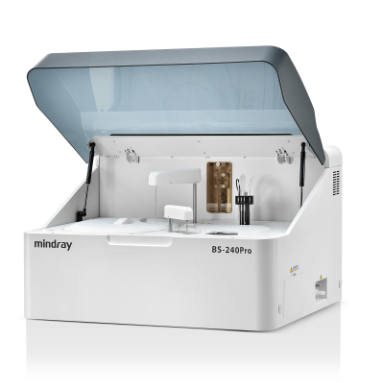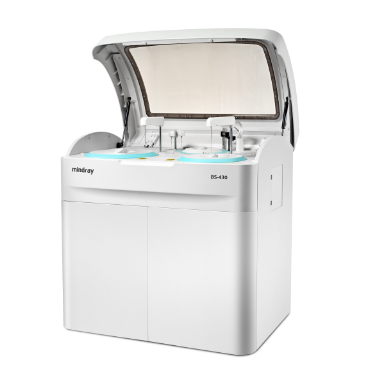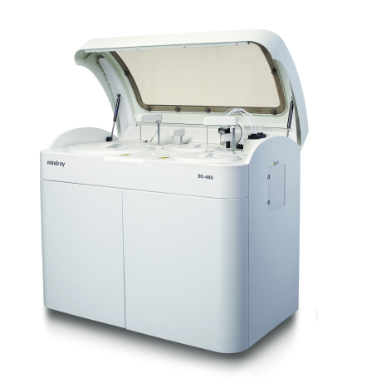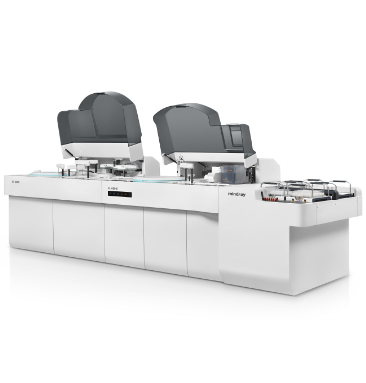COVID-19 caused by SARS-CoV-2 infection, is a contagious disease leading to the ongoing pandemic. D-dimer testing, a sensitive parameter to investigate hemostasis, could be helpful to rapidly identify COVID-19 patients with severe illness, pulmonary complications, and risk of thromboembolism. A recent meta-analysis has shown that patients with severe COVID-19 have higher D-dimer concentrations[1]. The risk stratification assisted by D-dimer testing and early treatment might reduce COVID-19-related morbidityand mortality[2,3]. As a sensitive monitoring index, D-dimer could provide valuable clinical information in the management and prognosis prediction of COVID-19 patients.
Mindray's Biochemistry D-dimer Solution
Mindray biochemistry D-Dimer assay with particle-enhanced immunoturbidimetric method can give quantitative determination of cross-linked fibrin degradation products (D-dimers).

Key benefits of Mindray D-dimer tests:
- Ready to use reagent: fully automated processing without manual working solution preparation
- Stable reagents: 4 weeks on-board stability at 2–8°C
- Wide linearity range (0.5~48 μg/mL): reduce sample dilution and improve efficiency
- High precision:

Mindray's flagship stand-alone chemistry analyzers:
References:
[1] Panagiotis Paliogiannis, Arduino Aleksander Mangoni, Paola Dettori3, et al.D-Dimer Concentrations and COVID-19 Severity: A Systematic Review andMeta-Analysis. Public Health, 04 August 2020.
[2] Dawei Wang, Bo Hu, et al. ClinicalChatacteristics of 138 hospitalized patients with 2019 novelCoronavirus-Infected Pneumonia in Wuhan,China[J]. JAMA. 2020.
[3] Fei Zhou., MD,a., Ting Yu., MD,b.Clinical course and risk factors for mortality of adult inpatients withCOVID-19 in Wuhan, China: a retrospective cohort study. Lancet. 2020 28March-3 April; 395(10229): 1054–1062.







